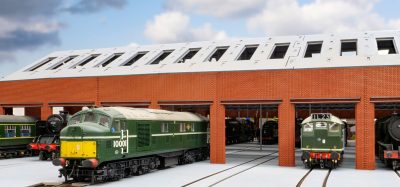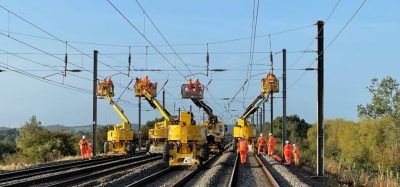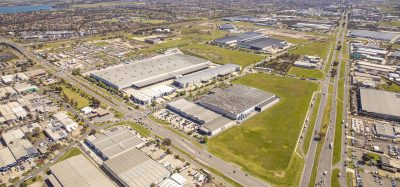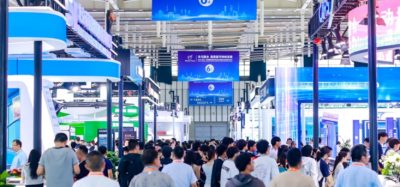Women Inspiring Rail: A Q&A with Vanessa Sutherland, SVP Government Relations & Chief Legal Officer, Norfolk Southern
Posted: 2 December 2019 | Global Railway Review | No comments yet
For our next Women Inspiring Rail instalment, Vanessa Sutherland, SVP Government Relations and Chief Legal Officer at Norfolk Southern Corporation, tells us that her team must develop long-term strategies to support the operations of the company and how she has enjoyed being a mentor for other women in rail.
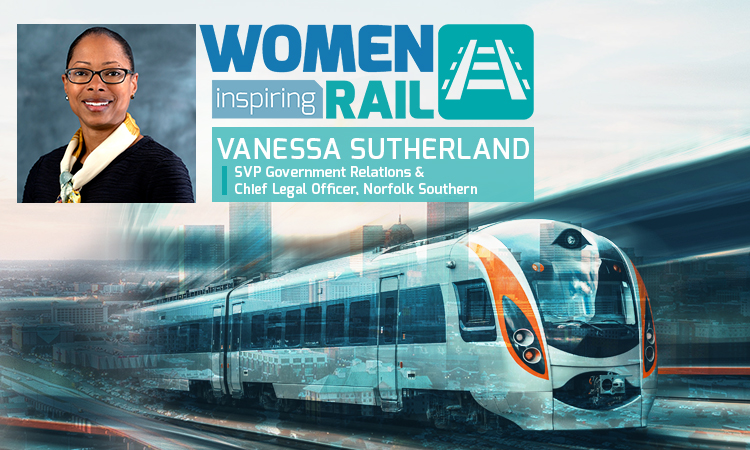

How did your career in rail begin and what does your current job involve?
I began my career in rail at the U.S. Department of Transportation as a Senior Executive Service Appointee in a presidential administration, which was an exciting time to be involved in transportation policy, regulatory matters, and accident investigations. My current job is the Chief Legal Officer and SVP of Government Relations at Norfolk Southern Corporation, a Class I freight railroad. In my current role, I am responsible for helping the company execute its strategic and business objectives, in part by achieving the best legal, regulatory, and policy outcomes possible. Law can be a business enabler as well as an area of compliance or obligations. Therefore, our team must develop or enhance long-term strategies to support the operations of the company, and to anticipate how the law will help or hinder our ability to serve our customers, shareholders, and communities. Lastly, but certainly not the least important, my role is to assure that our employees are developed effectively for future succession planning efforts.
What aspects of your job do you find the most challenging/rewarding, and why?
From an enterprise perspective, the challenges that we face change frequently, as we are always working to improve our services, manage the myriad of compliance obligations, and enhance our infrastructure.
From an enterprise perspective, the challenges that we face change frequently, as we are always working to improve our services, manage the myriad of compliance obligations, and enhance our infrastructure. We have been responding to a federal mandate called Positive Train Control, designed to ensure that trains operate within safe parameters to avoid certain accidents. We must work with suppliers, freight railroads, the federal government, passenger railroads and others to promote an integrated system, and have already installed the requirement equipment on approximately 3,000 locomotives with on-board computers and more than 18,620 trained employees.
One of the most challenging aspects at a department level is being staffed and resourced effectively to handle regulatory or policy shifts, catastrophic events, unexpected attrition, and complex but episodic legal matters. This challenge is also one of the most rewarding aspects of the job as well, because the environment is rich with intellectually stimulating, novel questions, including those regarding the role of automated technologies in the future of transportation. We have an amazingly talented employee base, within and outside of my department, which makes it fun to brainstorm and solve the many issues we face.
What is it about the rail industry that you are most passionate about?
The rail industry is dynamic and innovative, and represents many of the amazing historical landmarks and human-interest stories of the United States. Like many rail employees and enthusiasts, I love the innovative operations and technological advancements that have made rail a critical, sustainable part of the economy. Specifically, working for a freight railroad means that the complexity of the business ensures that you can learn something new daily about history, inventions, operations, customers, the environment, and communities on our network. It is an exciting time to witness how technology and automation may shape the railroad of the next 100 years.
What has been your biggest achievement/proudest moment so far in your rail career?
I must humbly say that my proudest moment so far in my rail career is to have connected with women who are new either to rail or to the workforce, who have honoured me with requests to mentor them.
I must humbly say that my proudest moment so far in my rail career is to have connected with women who are new either to rail or to the workforce, who have honoured me with requests to mentor them. I have always enjoyed ‘paying it forward’, because I am grateful for the sponsorship and mentorship that I received throughout my career. I hope that my biggest achievement will be to reflect years from now on my time in rail and have empirical data to show that I harnessed the best from people who then built a safer, more efficient, technologically-enhanced business that is a coveted place to work.
How has the rail industry evolved since you joined? What have been the biggest changes?
The rail industry has always been supported by technology and by innovators who strive to deliver more reliable, more efficient rail services, which is also being integrated into the customer engagement experience. The emphasis on data analytics tools has been one example of change that I have witnessed. The insights derived from evaluating historical data will allow us to predict and mitigate issues before they occur. Being able to use relevant data already at our fingertips will encourage us to allocate resources more strategically.
Who within the rail community has been an inspiration to you, and why?
The men and women who have helped to build and maintain the rail network throughout the United States while donating their time and money to the communities in which they live. Our employees support numerous charitable organisations to raise awareness, participation, and donations for children, the elderly, the arts, and many others. It is inspiring to see how much they put into serving our customers based on a deep technical and historical knowledge base, and then find time to serve others.
What can be done to diversify the workforce in the rail sector? What advice would you give to those thinking about pursuing a career in rail?
Workforce diversification in any sector requires intentional focus on recruitment, retention, succession planning, and workforce inclusion. I have said before that automation could have a significantly positive impact on the safety, reliability and efficiency of rail service, but we will need diverse, bright minds to bring new applications of automated technologies into operations.
If you would like to take part in the Women Inspiring Rail series, or would like to nominate a colleague to take part, please email: Leah Hockley, Junior Editor, Global Railway Review.
Related topics
Big Data, Digitalisation, Regulation & Legislation, The Workforce, Women in Rail




